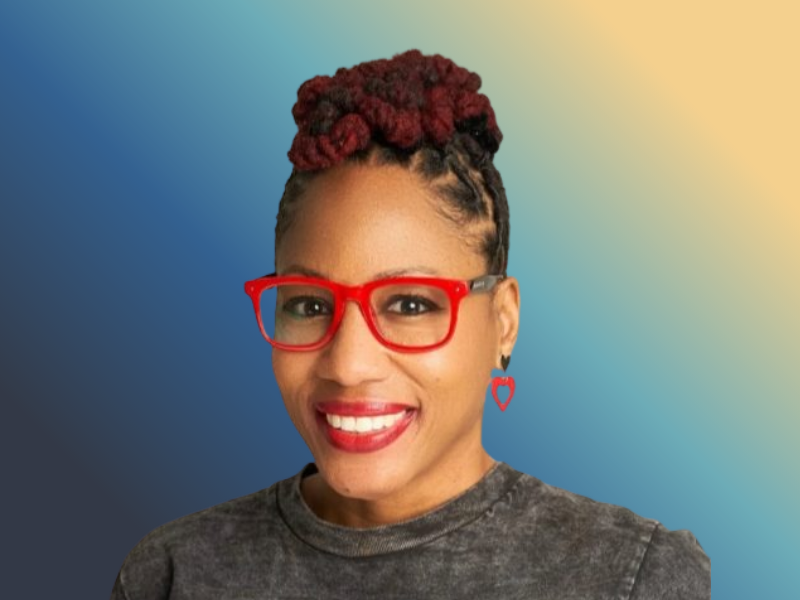Beat Burnout from Pressures: Build Resilience, Reclaim Regulation Through Self-Care
Kyana Bradley, a licensed clinical professional counselor and trauma-informed therapist, helps individuals form authentic connections with themselves and others. She accomplishes her goal as a therapist by healing emotional wounds, deepening self-awareness, and equipping them with practical tools to live in alignment with their truth.
Bradley, who is also a Maryland and Washington, DC-based podcast host, and authentic living strategist with over 22 years of experience assisting youth, adults, couples, and families navigate emotional and relational challenges.
Does self-care have value?
While answering questions about the value of self-care, Bradley stated that self-care is not a trend, it is a return to self. Practicing self-care builds emotional stability, strengthens our sense of identity, and supports healthy relationships.
“When we’re regulated and rested, we’re more grounded, patient, and present. It reduces stress, boosts self-esteem, and helps prevent burnout. But most importantly, it reminds us that we are worthy of our own care without needing to earn it,” Bradley said.
“True self-care is a necessity. It’s a form of maintenance, not indulgence. We don’t wait for a breakdown to get an oil change, and in the same way, it is not wise for us to wait for burnout to care for ourselves,” Bradley added.
Three common self-care myths:
1. Self-care is expensive or time-consuming.
“While spa days and vacations are nice, true self-care can look like reading, drinking water, saying ‘no’, or simply sitting in stillness. While a self-care activity can last for hours, sometimes it can just be a few intentional minutes that makes all the difference,” Bradley stated.
2. Self-care consists of just relaxation.
“In reality, it includes setting boundaries, processing emotions, and sometimes doing hard internal work that doesn’t feel relaxing at all, but is deeply necessary for growth.”
3. Self-care is a solo act.
“It can also mean spending time with friends, family, or like-minded people who pour into a person.”
“Safe, affirming connection is a powerful form of self-care; it reminds us we’re not alone and helps regulate our nervous systems in ways isolation cannot.”
Three groups that should engage in self-care more:
1. Mothers and caregivers often show up in the role of serving others. They forget they are also someone worth caring for, according to Bradley.
“They can start by carving out 10-15 minutes a day just for themselves and practicing saying no without guilt,” she added.
2. Men and boys may neglect self-care more often than other groups.
Bradley explained that cultural messages often convey the idea that vulnerability or emotional care is weakness. Reframing self-care as strength and emotional intelligence as power can help shift this mindset.
3. Helping professionals, such as therapists, nurses, educators, and spiritual leaders, should be mindful to engage in self-care. Burnout should not be normalized.
“We benefit by regularly asking ourselves: ‘Am I practicing what I preach?’ We need accountability and support systems just like our clients do,” said Bradley.
Self-care Categories
Bradley noted that self-care can be broken down into categories that include emotional, physical, spiritual, social, and mental.
Emotional self-care can include journaling, therapy, and processing your feelings rather than avoiding them.
Physical self-care includes activities such as walking, stretching, resting, proper nutrition, and seeing your doctor.
Spiritual components of self-care integrate practices such as prayer, meditation, nature walks, and reading sacred or grounding texts.
Social self-care aspects involve life-giving individuals who can provide a combination of rejuvenating energy that nourishes, energizes, and emotionally uplifts our overall well-being.
Mental self-care might entail unplugging from information overload, learning something new, or reframing toxic self-talk.
“It’s about tuning into what you need, not what’s trending,” Bradley reminds.
Find Bradley on TikTok and Instagram @AuthenticallyKyana. Visit her website: www.AuthenticConnectionsTS.com. Bradley currently provides virtual-only therapy sessions to ensure greater accessibility and flexibility for her clients. She serves individuals located in Maryland (including Baltimore, Annapolis, and surrounding areas) and Washington, D.C.







